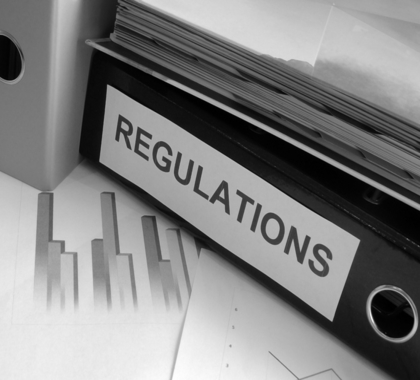The Florida State Legislature let a bill languish this session that would have loosened or eliminated state occupational license requirements imposed by 23 professional licensing boards on nearly 30 percent of Florida’s workforce.
Consideration of the 120-page S.B. 1640, which faced opposition from groups of regulated professionals, stalled in the state House of Representatives and was delayed on the state Senate floor on May 2. The session ended May 3 without further action.
Gov. Ron DeSantis has made occupational licensing reform a focus of his legislative agenda.
“Aggressive and appropriate deregulation is a top priority of my administration,” stated DeSantis in a January 24 news release.
Costs ‘Borne by Consumers’
Occupational licensing in the state of Florida exacts a heavy price, says Sal Nuzzo, vice president of policy for the James Madison Institute (JMI).
“Florida has one of the worst environments for licensing and licenses more occupations unnecessarily than just about anywhere else,” said Nuzzo. “In addition, the licensing requirements are far more burdensome than [in] most other states.
“Ultimately, the costs are borne by consumers, who pay more for services, and by those individuals trying to get on the rungs of a career ladder,” Nuzzo said.
Lower Barriers, Less Crime
Florida’s high occupational licensing barriers are associated with higher criminal recidivism, which imposes costs on taxpayers, says Nuzzo.
“As JMI illustrated in a recent policy study, our state budget suffers because there is a direct correlation between the levels of licensing and the recidivism rate among ex-felons,” said Nuzzo.
The study, “Bridging the Divide: Licensing and Recidivism,” found reducing the average number of training days required to obtain a license in Florida to the national average, based on data in a 30-state sample, could cut the state’s re-arrest rate by more than half.
“If we want to lower the likelihood of ex-felons being re-incarcerated, we must lower the barriers to those individuals gaining meaningful employment,” said Nuzzo.
Florida ‘Lagging Behind’
Occupational licensing limits Florida’s economy by making it more difficult to fill skilled jobs, says Matthew Kelly, a research fellow at the Colloquium for the Advancement of Free-Enterprise Education at the University of Texas at Dallas and a policy advisor to The Heartland Institute, which publishes Budget & Tax News.
“[Florida] has a very diverse economy overall, [but] it could be more diverse and it is sort of lagging behind when it comes to higher paying and higher skill jobs,” said Kelly. “Occupational licensing [has] an impact on that by making it more difficult to obtain those skilled jobs.
“Florida has some of the most restrictive occupational licensing regulations as measured by number of hours to obtain some licenses and also by the number of occupations that are licensed,” said Kelly. “[It] is a drag on the economy.”
Licensing As Last Resort
States should try a variety of less restrictive regulations before imposing occupational licensing, and voluntary systems can work well, says Nuzzo.
“There is a wealth of options for policymakers to consider—insurance requirements, private certifications, bonding—before they go to a government license, which should be the policy of last resort,” Nuzzo said.
“With that said, there will still be a market for training, and possibly even new private markets for professional certifications which are set apart from a government license,” Nuzzo said.
Kenneth Artz ([email protected]) writes from Dallas, Texas.
Internet Info:
Vittorio Nastasi and Samuel R. Staley, “Bridging the Divide: Licensing and Recidivism,” James Madison Institute, April 8, 2019: https://heartland.org/publications-resources/publications/james-madison-institute-bridging-the-divide-licensing-and-recidivism





